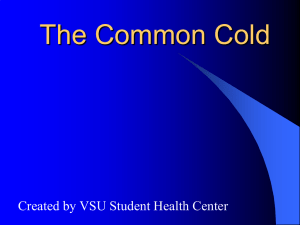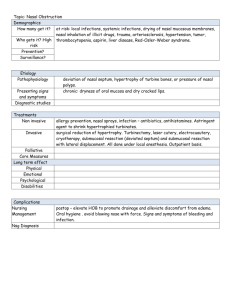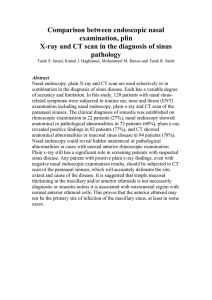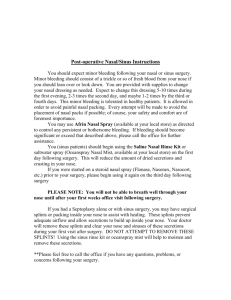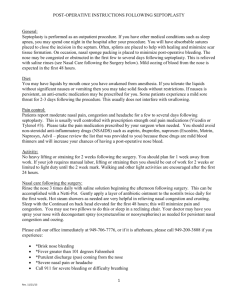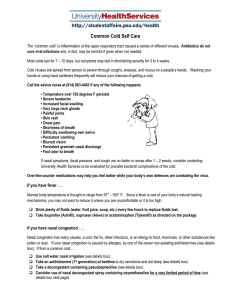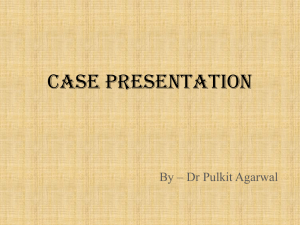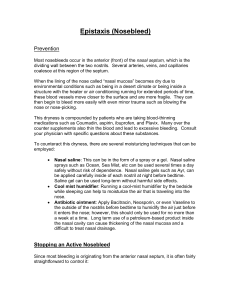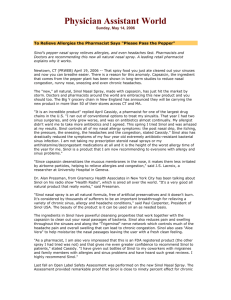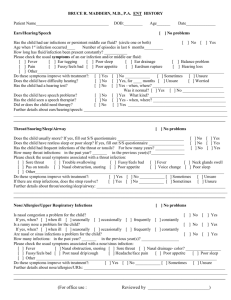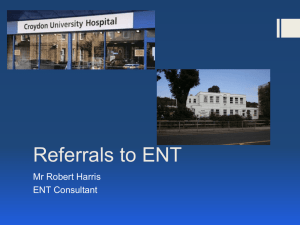Nasal & Laryngoscopy: ENT Patient Information
advertisement
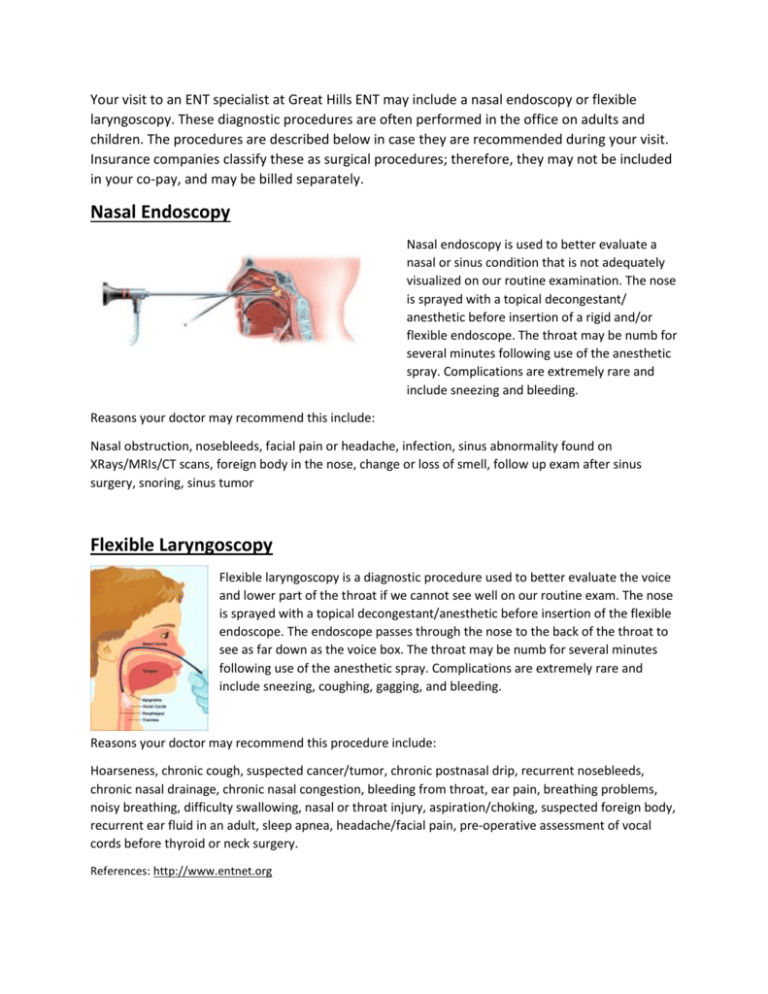
Your visit to an ENT specialist at Great Hills ENT may include a nasal endoscopy or flexible laryngoscopy. These diagnostic procedures are often performed in the office on adults and children. The procedures are described below in case they are recommended during your visit. Insurance companies classify these as surgical procedures; therefore, they may not be included in your co-pay, and may be billed separately. Nasal Endoscopy Nasal endoscopy is used to better evaluate a nasal or sinus condition that is not adequately visualized on our routine examination. The nose is sprayed with a topical decongestant/ anesthetic before insertion of a rigid and/or flexible endoscope. The throat may be numb for several minutes following use of the anesthetic spray. Complications are extremely rare and include sneezing and bleeding. Reasons your doctor may recommend this include: Nasal obstruction, nosebleeds, facial pain or headache, infection, sinus abnormality found on XRays/MRIs/CT scans, foreign body in the nose, change or loss of smell, follow up exam after sinus surgery, snoring, sinus tumor Flexible Laryngoscopy Flexible laryngoscopy is a diagnostic procedure used to better evaluate the voice and lower part of the throat if we cannot see well on our routine exam. The nose is sprayed with a topical decongestant/anesthetic before insertion of the flexible endoscope. The endoscope passes through the nose to the back of the throat to see as far down as the voice box. The throat may be numb for several minutes following use of the anesthetic spray. Complications are extremely rare and include sneezing, coughing, gagging, and bleeding. Reasons your doctor may recommend this procedure include: Hoarseness, chronic cough, suspected cancer/tumor, chronic postnasal drip, recurrent nosebleeds, chronic nasal drainage, chronic nasal congestion, bleeding from throat, ear pain, breathing problems, noisy breathing, difficulty swallowing, nasal or throat injury, aspiration/choking, suspected foreign body, recurrent ear fluid in an adult, sleep apnea, headache/facial pain, pre-operative assessment of vocal cords before thyroid or neck surgery. References: http://www.entnet.org
